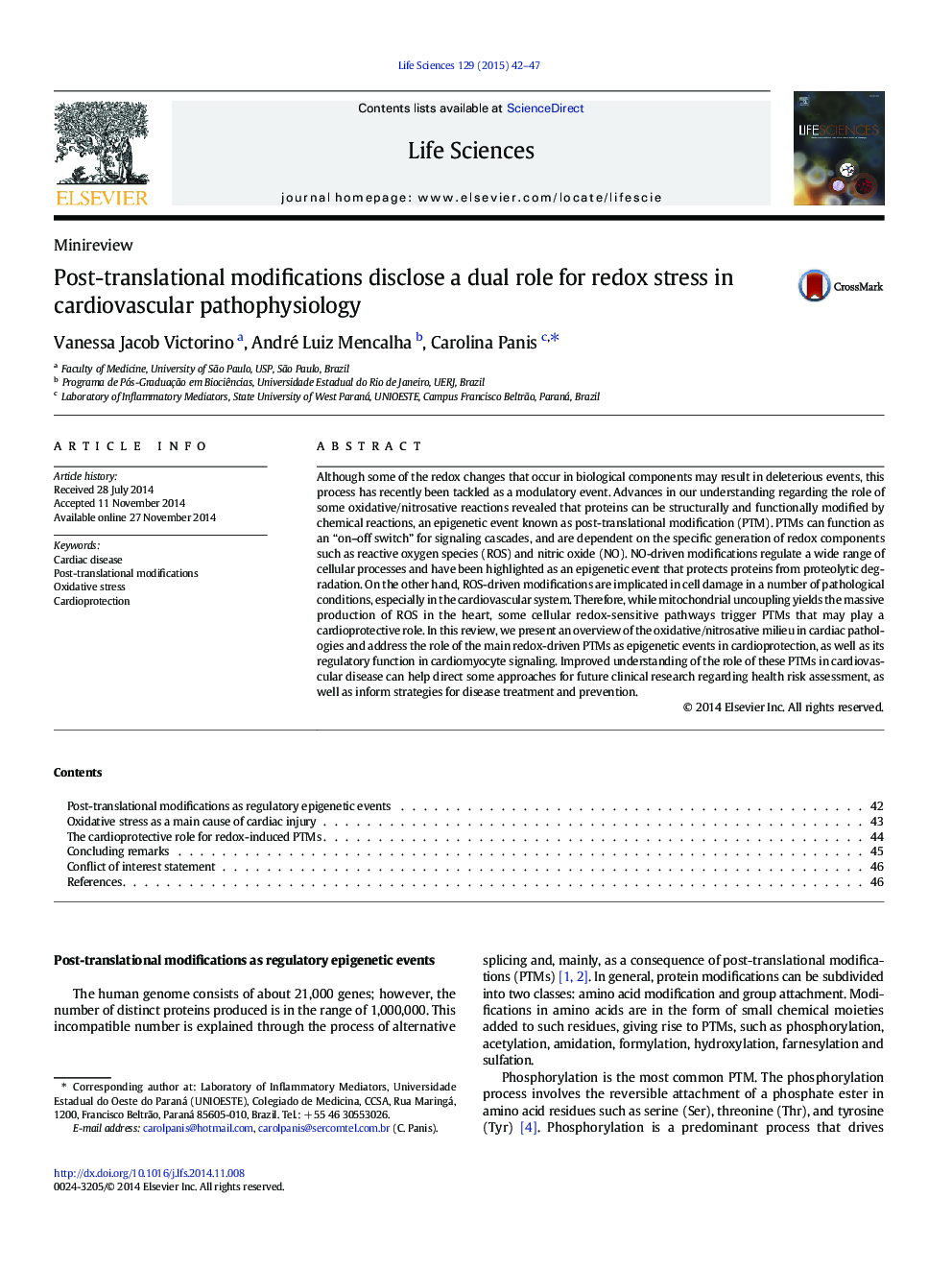| کد مقاله | کد نشریه | سال انتشار | مقاله انگلیسی | نسخه تمام متن |
|---|---|---|---|---|
| 2550948 | 1560599 | 2015 | 6 صفحه PDF | دانلود رایگان |
Although some of the redox changes that occur in biological components may result in deleterious events, this process has recently been tackled as a modulatory event. Advances in our understanding regarding the role of some oxidative/nitrosative reactions revealed that proteins can be structurally and functionally modified by chemical reactions, an epigenetic event known as post-translational modification (PTM). PTMs can function as an “on–off switch” for signaling cascades, and are dependent on the specific generation of redox components such as reactive oxygen species (ROS) and nitric oxide (NO). NO-driven modifications regulate a wide range of cellular processes and have been highlighted as an epigenetic event that protects proteins from proteolytic degradation. On the other hand, ROS-driven modifications are implicated in cell damage in a number of pathological conditions, especially in the cardiovascular system. Therefore, while mitochondrial uncoupling yields the massive production of ROS in the heart, some cellular redox-sensitive pathways trigger PTMs that may play a cardioprotective role. In this review, we present an overview of the oxidative/nitrosative milieu in cardiac pathologies and address the role of the main redox-driven PTMs as epigenetic events in cardioprotection, as well as its regulatory function in cardiomyocyte signaling. Improved understanding of the role of these PTMs in cardiovascular disease can help direct some approaches for future clinical research regarding health risk assessment, as well as inform strategies for disease treatment and prevention.
The dual role of post-translational modifications in cardiac myocytes. Cardiac myocytes are under constant stress. Reactive species (RS) produced during cellular processes may present both protective and deleterious effects, driven in part by post-translational modifications (PTMs). S-glutathionylation and S-nitrosylation are reported as protective PTM to cardiac cells, on contrary on the carbonylation process that frequently results in protein damage. The diminished antioxidant response or increased RS production results in oxidative stress leading to lipid, protein and DNA damage. A tight modulatory control of this process is exerted by PTMs, which can result either in loss of function or protection against the oxidative damage in pivotal protein components.Figure optionsDownload high-quality image (194 K)Download as PowerPoint slide
Journal: Life Sciences - Volume 129, 15 May 2015, Pages 42–47
